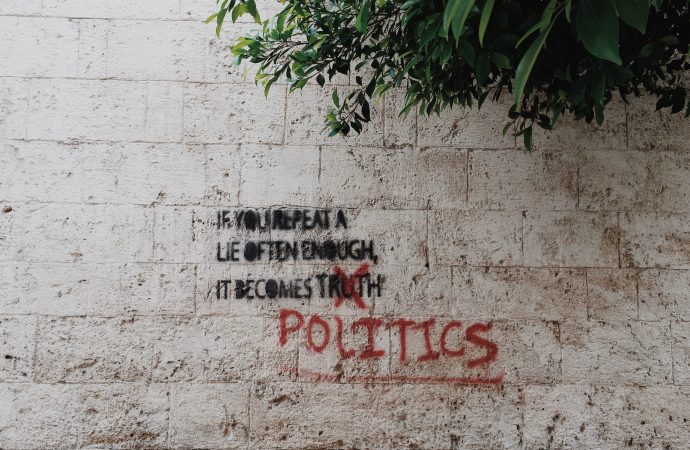Understanding a country’s ruling party is essential for citizens to stay informed. But what exactly is a ruling party? How does it affect the day-to-day lives of the people it governs? In this article, we will explore what a ruling party is, how it works, and why you should pay attention to who’s in charge.
Understanding a country’s ruling party is essential for citizens to stay informed. But what exactly is a ruling party? How does it affect the day-to-day lives of the people it governs? In this article, we will explore what a ruling party is, how it works, and why you should pay attention to who’s in charge. We will also discuss how the ruling party can have a lasting impact on your country’s politics, economy, and culture. Finally, we will look at ways to get involved with the ruling party in order to make your voice heard.
What is a ruling party?
The ruling party is the political party that holds the majority of seats in a legislature. This means that the ruling party has more control over the government and can pass laws more easily. The ruling party may also have more influence over the country’s economy and foreign policy.
The ruling party can change over time, depending on how many seats each party holds in a legislature. For example, if the ruling party loses a significant number of seats in an election, they may no longer be the majority party and may have to form a coalition government with another party.
The ruling party may also change if there is a vote of no confidence in the government or if the prime minister resigns. In some countries, there may also be a change of government if the ruling party is defeated in a general election.
The different types of ruling parties
In a democracy, the ruling party is the political party that holds the majority of seats in the legislature. The party that wins the most seats in an election forms the government and its leader usually becomes prime minister or president. The second largest party becomes the opposition.
There are many different types of ruling parties, each with its own strengths and weaknesses. The most common are single-party states, coalition governments, and minority governments.
Single-party states are those where only one political party is allowed to exist and hold power. This type of government typically arises out of revolutions or coups d’état, as was the case in Russia after the Bolshevik Revolution in 1917. In a single-party state, the ruling party has complete control over all aspects of government and society. This can be both good and bad; while single-party states can be very stable, they can also be quite oppressive if the ruling party is autocratic.
Coalition governments are formed when two or more political parties join together to form a majority in the legislature. This type of government is very common in parliamentary systems, such as those found in Europe. Coalition governments can be unstable, as there is often disagreement between the various parties on policy issues. However, they can also be quite effective at governing if the parties are able to work together efficiently.
Minority governments occur when the ruling party does not have a majority of seats in the legislature. This can happen for several reasons
Pros and cons of having a ruling party
The ruling party is the party with the most seats in parliament. The prime minister and cabinet are usually from the ruling party. The ruling party gets to make decisions about what laws to pass and what policies to implement. Having a ruling party can be good or bad, depending on who the ruling party is and what their priorities are.
Pros:
-The ruling party can make decisions quickly without having to consult with other parties.
-The ruling party has a mandate from the people to govern.
-The ruling party can enact its vision for the country without obstacles.
Cons:
-The ruling party can abuse its power if it is not held accountable by the other parties or by the people.
-The ruling party may not be representative of all people in the country, leading to dissatisfaction and protests.
-If the ruling party makes bad decisions, they cannot be easily removed from power since they have a majority in parliament.
What are the implications of a ruling party?
The ruling party is the political party that holds the majority of seats in a legislature. This gives them significant control over the direction of the country. The implications of this are far-reaching and can affect every aspect of a citizen’s life. Here are some examples:
-The ruling party can pass laws that favor their own interests, rather than those of the people.
-They can appoint judges that will rule in their favor, regardless of whether or not it is just.
-The media may be biased in favor of the ruling party, giving them an unfair advantage.
-The ruling party may use their power to stifle dissent and persecute opponents.
All of these factors can have a negative impact on a country and its citizens. It is important to be aware of them when considering which party to vote for in an election.
How does the ruling party affect you?
In a democracy, the ruling party is the party that holds the majority of seats in the legislature. The ruling party is typically the party that forms the government, with its leader becoming the prime minister or president. In a parliamentary system, the ruling party is also typically the largest party in parliament.
The ruling party has a significant impact on citizens’ lives. The policies and laws that the government enacts can directly affect individuals, families, businesses, and more. For example, tax laws passed by the government can impact how much money people have to pay in taxes. Laws related to education can affect how much money is available for schools and what type of education is available to children. And policies related to healthcare can directly impact people’s access to medical care and treatments.
In addition to enacting laws and policies, the ruling party also has control over the country’s budget. This means that they can decide how much money to allocate towards different areas such as healthcare, education, defense, and more. They can also choose to cut spending in certain areas or increase it depending on their priorities.
The ruling party also has a lot of influence over who gets appointed to important positions within the government. This includes positions such as judges, ambassadors, and heads of agencies like law enforcement or environmental protection. The people appointed to these positions can help shape policy and make decisions that affect everyone in the country.
Finally, the ruling party can also impact citizens’ lives indirectly through its
Conclusion
The ruling party is an important part of any democratic system and can have a significant impact on the lives of citizens. By understanding what the ruling party entails, we are better equipped to assess how our political decisions might affect us in the long run. With this knowledge, we can be more aware of the policies and initiatives put forth by the government and choose to vote for those that are most beneficial for ourselves and our community as a whole.





















Leave a Comment
Your email address will not be published. Required fields are marked with *